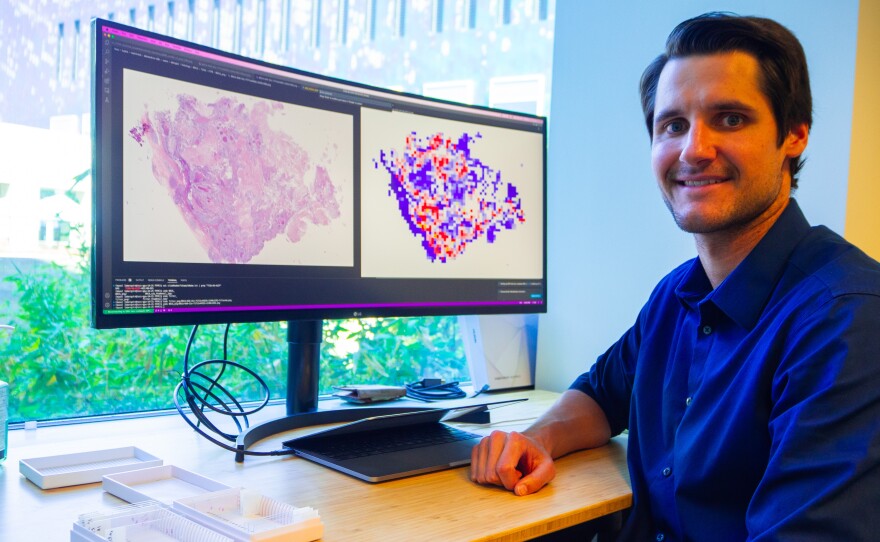A biopsy is the first step to identify a cancerous tumor. To learn more, the tumor’s tissue can be examined under a microscope, genetically tested or analyzed with artificial intelligence.
Scientists at UC San Diego say that third option is showing a lot of promise.
A new AI platform called DeepHRD has been able to spot complex molecular patterns in tissue sample images. It also shows that some breast cancers were most likely caused by a deficiency called HRD.
Knowing that means knowing what treatment to use and knowing it very quickly.
Erik Bergstrom, a postdoctoral researcher at the Moores Cancer Center, said the AI system works by examining digital images of tissue samples. So it gives the cancer a very close look.
Bergstrom said a genetic test on a tumor could take weeks, while AI can perform its analysis in minutes.
“It’s a lot cheaper. It’s quicker. So we can run this on a larger cohort of patients if we think there might be some possibility. So we can get a diagnosis for each individual patient,” Bergstrom said.
The AI platform has been tested in cases of breast cancer and ovarian cancer. If they are caused by the HRD deficiency, doctors can choose the most effective form of chemotherapy.
“This AI approach saves the patient critical time,” said Ludmil Alexandrov, a professor of bioengineering at UCSD. “Oncologists can prescribe treatment immediately after initial tissue diagnosis. Remarkably, the AI test has a negligible failure rate. While current genomic tests have a failure rate of 20% to 30%, necessitating retesting, or even invasive rebiopsy.”
The ability to identify the cause of the cancer quickly and accurately is called precision oncology. Bergstrom said the AI platform can be used remotely and can analyze cases of cancer wherever they take place.
“So really the take-home is hopefully to deploy this in a global setting. Anywhere that they diagnose cancer they’ll have a tissue slide, and we can deploy diagnosis on the cloud,” Bergstrom said.
He and some partners have founded a company to promote and market the AI platform. The paper, by Bergstrom and Alexandrov, was published in the Journal of Clinical Oncology.






